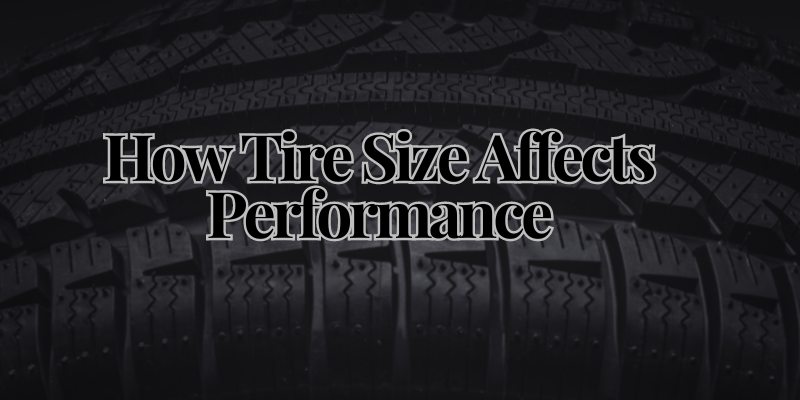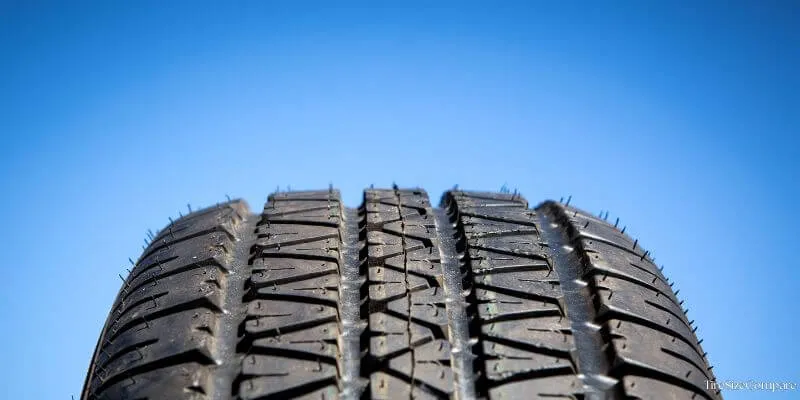How Tire Size Affects Performance

Changing your tire size can significantly impact your vehicle’s performance. Larger tires generally provide better traction and stability, while smaller tires can improve fuel efficiency and acceleration.
However, choosing the right tire size depends on your driving needs and vehicle specifications.
Improved Traction
Larger tires have more surface area in contact with the road, which can increase traction. This is particularly useful in off-road conditions or on wet, slippery roads.
The additional contact can also enhance stability, especially during sharp turns or sudden maneuvers. For example, if you often drive on rough terrains or in areas with heavy rain, larger tires can give you better control and confidence.
Enhanced Aesthetic Appeal
Upgrading to larger tires can also enhance the aesthetic appeal of your vehicle. Many car enthusiasts prefer larger tires for their sporty, aggressive look.
This visual upgrade can make your car stand out and reflect your personal style. However, it’s important to balance appearance with functionality, as excessively large tires can affect ride comfort and fuel efficiency.

Fuel Efficiency & Acceleration
Smaller tires are generally lighter, which can improve your vehicle’s acceleration and fuel efficiency. This is because the engine has to work less to move the vehicle, leading to better mileage.
For instance, if you drive mainly in urban areas with frequent stop-and-go traffic, smaller tires might be more beneficial for saving fuel and providing a smoother ride.
Speedometer Accuracy
Changing tire size can affect your speedometer accuracy. Your vehicle’s speedometer is calibrated based on the original tire size. Installing larger or smaller tires can cause your speedometer to display incorrect speeds.
This discrepancy can lead to speeding tickets or unsafe driving if you’re not aware of the actual speed. It’s crucial to recalibrate your speedometer or consult a professional when changing tire sizes to ensure accurate readings.
Ride Comfort
Tire size also impacts ride comfort. Larger tires with lower-profile sidewalls can make your ride feel stiffer, as there is less cushioning to absorb road bumps.
Conversely, smaller tires with higher-profile sidewalls provide a smoother, more comfortable ride by absorbing more of the road’s imperfections. Consider your driving habits and preferences when choosing tire sizes to maintain a balance between performance and comfort.

Handling & Stability
Larger tires can improve handling and stability due to their increased surface area and grip. This is particularly beneficial for high-performance or sports cars where precise handling is crucial.
However, larger tires can also increase rolling resistance, which may slightly reduce fuel efficiency. On the other hand, smaller tires can enhance agility and make the vehicle feel more nimble, which is advantageous in city driving.
Off-Road Capabilities
For off-road enthusiasts, larger tires are typically better. They provide more ground clearance, helping you navigate over rocks, mud, and uneven terrain without damaging the undercarriage of your vehicle.
Additionally, the enhanced traction from larger tires can help prevent getting stuck in tricky conditions. However, it’s important to ensure your vehicle can accommodate larger tires without modifications that could affect safety and performance.
Aesthetics vs. Practicality
Balancing aesthetics and practicality is key when choosing tire sizes. While larger tires can enhance your vehicle’s look and off-road capabilities, they might not be the best choice for everyday city driving due to potential impacts on fuel efficiency and ride comfort.
Smaller tires might be less visually appealing but can offer better fuel economy and a smoother ride for daily commutes.
Can Changing Tire Size Damage My Vehicle?
Yes, improper tire size can cause damage to your vehicle’s suspension, brakes, and speedometer accuracy. Always consult with a professional to ensure compatibility.
How Do I Know the Right Tire Size for My Vehicle?
Refer to your vehicle’s manual or the placard on the driver’s side door jamb for the recommended tire size. You can also consult with a tire professional.
Will Larger Tires Affect My Gas Mileage?
Yes, larger tires can reduce gas mileage due to increased rolling resistance and weight. Smaller tires are generally more fuel-efficient.
Do I Need to Recalibrate My Speedometer After Changing Tire Size?
Yes, changing tire size can affect speedometer readings. It’s important to recalibrate it to ensure accurate speed readings.
Conclusion
Selecting the right tire size is crucial for optimizing your vehicle’s performance, fuel efficiency, and comfort. Larger tires provide better traction, stability, and off-road capabilities but may affect ride comfort and fuel economy.
Smaller tires improve acceleration, fuel efficiency, and ride comfort but might compromise on aesthetics and handling. Consider your driving needs and consult with a professional to choose the best tire size for your vehicle.



